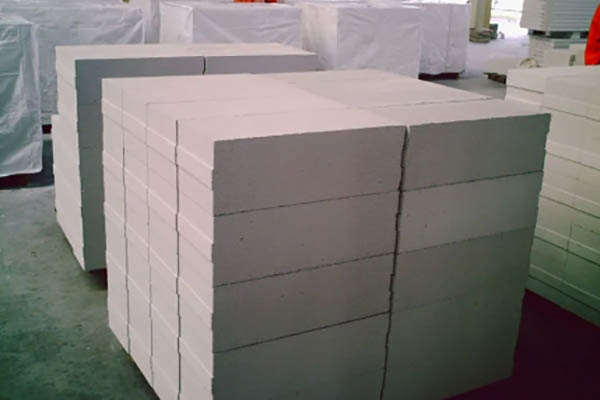ALC blocks, also known as Autoclaved Lightweight Concrete blocks, are a revolutionary building material that has gained significant popularity in the construction industry in recent years. Known for their lightweight nature and high performance, ALC blocks are a preferred choice for a wide range of construction projects, from residential homes to commercial buildings. But what exactly is an ALC block, and what makes it so unique?
1. Understanding ALC Blocks
ALC blocks are made from a mixture of sand, cement, lime, gypsum, and water, along with an expanding agent that creates a porous, lightweight structure. This mixture is then poured into molds and cured in an autoclave—a high-pressure steam chamber. The autoclaving process helps to create a block that is not only lighter than traditional concrete but also has superior thermal insulation properties.
The porous nature of ALC blocks, characterized by tiny air pockets distributed throughout the material, gives them excellent insulating properties. This makes them ideal for use in both hot and cold climates, as they help to maintain comfortable indoor temperatures by reducing heat transfer between the inside and outside of a building.
2. Key Benefits of ALC Blocks
ALC blocks offer several advantages over traditional construction materials, which is why they have become increasingly popular in modern construction. Here are some of the key benefits:
- Lightweight and Easy to Handle: One of the most significant advantages of ALC blocks is their lightweight nature. Being much lighter than traditional concrete blocks or bricks, they are easier to handle and transport, reducing labor costs and speeding up the construction process. This lightweight property also reduces the overall load on a building’s foundation, which can be particularly beneficial in high-rise construction.
- Excellent Thermal Insulation: ALC blocks provide superior thermal insulation compared to other building materials, which can lead to significant energy savings. The air pockets within the blocks reduce heat conduction, helping to keep buildings cool in the summer and warm in the winter. This property not only enhances comfort but also reduces heating and cooling costs.
- Sound Insulation: In addition to thermal insulation, ALC blocks also offer excellent sound insulation properties. The porous structure of the blocks absorbs sound, making them an ideal choice for buildings where noise reduction is important, such as residential complexes, schools, and hospitals.
- Fire Resistance: ALC blocks are non-combustible and have a high fire resistance rating. They can withstand high temperatures without releasing toxic gases or collapsing, providing a higher level of safety in the event of a fire. This makes them suitable for use in fire-prone areas or in buildings where fire safety is a major concern.
- Environmental Sustainability: ALC blocks are considered environmentally friendly because they use less raw material than traditional concrete and have a lower carbon footprint. The manufacturing process requires less energy, and the blocks can often be recycled at the end of their life cycle. Additionally, the thermal efficiency of ALC blocks contributes to lower energy consumption in buildings, which helps reduce overall environmental impact.
3. Common Applications of ALC Blocks
Thanks to their versatile properties, ALC blocks are used in a wide range of construction applications. Here are some of the most common uses:
- Residential Buildings: ALC blocks are often used for constructing the walls and partitions of residential buildings. Their thermal and sound insulation properties, combined with their fire resistance, make them an excellent choice for creating comfortable and safe living spaces.
- Commercial and Industrial Buildings: In commercial and industrial settings, ALC blocks are used for both interior and exterior walls. Their lightweight nature reduces the load on structural frameworks, making them suitable for large-scale buildings like factories, warehouses, and office complexes.
- Renovation and Retrofitting: ALC blocks are also popular in renovation and retrofitting projects. Due to their ease of installation and compatibility with other building materials, they are an ideal choice for adding new walls or partitions in existing buildings without adding significant weight or requiring extensive structural modifications.
4. Conclusion
ALC blocks are a modern building material that offers a range of benefits, from lightweight handling and thermal insulation to fire resistance and environmental sustainability. As the demand for efficient, sustainable building solutions continues to grow, ALC blocks are likely to become an increasingly common choice in construction projects worldwide. Whether for new builds or renovations, these versatile blocks offer an effective solution for creating strong, energy-efficient, and safe structures.
Post time: 9 月-03-2024





